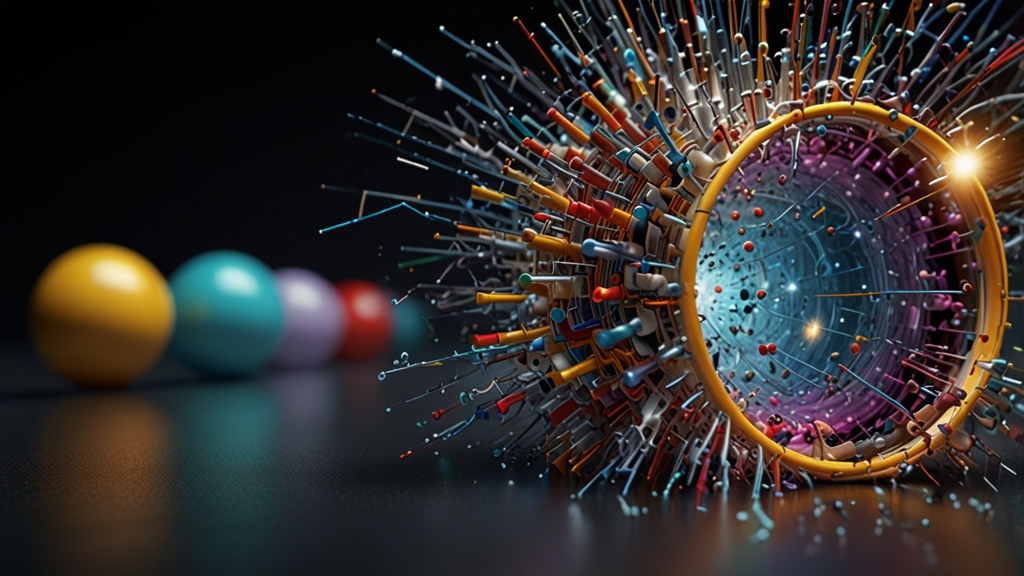The Surprising Ways Emotional Intelligence Affects Your Happiness
Emotional intelligence (EI) is a crucial skill in navigating the complexities of life, relationships, and personal well-being. While mental agility and academic intelligence often gain more attention, emotional intelligence plays a pivotal role in affecting our overall happiness. But how exactly does EI contribute to a more joyful life? Let's explore the surprising ways in which emotional intelligence impacts your happiness.
Understanding Emotional Intelligence
Emotional intelligence refers to the ability to recognize, understand, manage, and influence our own emotions and the emotions of others. It is typically broken down into four core components: self-awareness, self-regulation, social awareness, and relationship management. Together, these components enable individuals to navigate social complexities and make personal decisions that achieve positive outcomes.
Self-Awareness: The Foundation of Happiness
Self-awareness is the cornerstone of emotional intelligence. It involves understanding your own emotions, strengths, weaknesses, and values. When you're self-aware, you are less likely to be swayed by external factors and more aligned with your inner values and desires. This creates a sense of authenticity and inner peace.
"The greatest weapon against stress is our ability to choose one thought over another." - William James
Self-Regulation: Mastering Your Emotions
Self-regulation, another critical aspect of EI, involves managing your emotions in healthy ways, especially in stressful or challenging situations. It means not acting impulsively but taking time to think things through before making emotional decisions. This skill helps you maintain emotional balance and reduces the likelihood of negative emotional spillovers, thus contributing significantly to your overall happiness.
Social Awareness: Deepening Connections
Social awareness involves being attuned to the emotions and thoughts of those around you. This includes empathy, understanding social dynamics, and recognizing the emotional currents within groups. By being socially aware, you can better manage relationships and are more likely to form meaningful connections, which are essential for long-term happiness.
Relationship Management: Building a Support Network
Strong relationship management skills can greatly enhance your happiness. Effective communication, conflict resolution, and influence come into play here. When you can manage relationships well, you build a robust support network of friends, family, and colleagues who will be there for you in times of need, thereby boosting your overall sense of well-being.
"Happiness is not something ready-made. It comes from your own actions." - Dalai Lama
Resilience: Bouncing Back from Adversity
Emotionally intelligent individuals are often more resilient. They have the ability to bounce back from adversity and setbacks more rapidly. Resilience, a product of self-regulation and social support, is essential for long-term happiness as it equips you to handle life's inevitable challenges with grace and fortitude.
The Workplace: Emotional Intelligence and Job Satisfaction
Workplace happiness is also significantly influenced by emotional intelligence. EI improves your ability to work in teams, manage stress, and handle workplace conflicts efficiently. Employees with high emotional intelligence are often more satisfied with their jobs, have better work relationships, and are more likely to be promoted, all of which contribute to a more fulfilling career.
Conclusion
In summary, emotional intelligence affects multiple dimensions of happiness, from personal well-being and resilience to social relationships and professional success. By enhancing your emotional intelligence, you are investing in a happier, more fulfilling life. As you continue to develop self-awareness, self-regulation, social awareness, and relationship management skills, you will find that your capacity for happiness expands in surprising and rewarding ways.
"It is not the strongest of the species that survive, nor the most intelligent, but the one most responsive to change." - Charles Darwin
The key takeaway is simple: emotional intelligence is not just about understanding others, but also about understanding yourself. When you master this, you unlock the door to enduring happiness.







